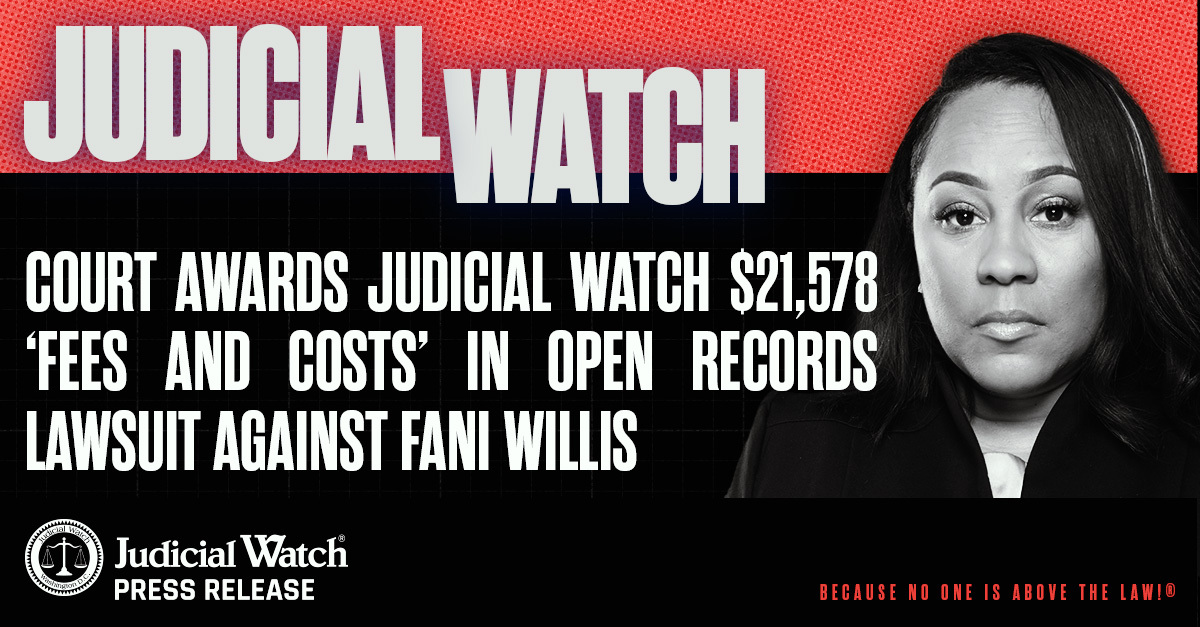

Judicial Watch Appeals to U.S. Supreme Court to Overturn Maryland Congressional Gerrymander


‘[T]he gerrymandering of Maryland’s congressional districts … allows Maryland’s legislators to steal for themselves a significant portion of the power to select congresspersons, which power should only by exercised ‘by the People.’
(Washington, DC) — Judicial Watch asked the U. S. Supreme Court to overturn a district court decision dismissing a lawsuit challenging the constitutionality of Maryland’s 2011 gerrymandering of its congressional districts. The Judicial Watch lawsuit argues that the controversial redistricting transferred “the power to select congressional representatives from Maryland’s voters to legislators.” The lawsuit, (Parrott, et al, v. Lamone, et al (No. 1:15-cv-01849)), was filed on behalf of voters in each of Maryland’s eight congressional districts in June 2015. The Supreme Court appeal was filed on October 28, 2016.
In August 2016, the United States District Court for the District of Maryland ruled for the State in dismissing the plaintiffs’ claims. Judicial Watch is seeking Supreme Court review of the district court’s decision, arguing that Maryland’s gerrymandered districts violate the plaintiffs’ constitutional rights. Cases involving legislative redistricting are heard by a special three judge panel, and the decision of that panel can be appealed directly to the U.S. Supreme Court, bypassing the intermediate courts of appeals.
The lawsuit challenges a congressional districting plan signed into law by then-Gov. Martin O’Malley in October 2011. The suit alleges that the Maryland’s congressional district map is the most gerrymandered in the country. According to the Judicial Watch Supreme Court appeal:
[T]he gerrymandering of Maryland’s congressional districts…allows Maryland’s legislators to steal for themselves a significant portion of the power to select congresspersons, which power should only by exercised “by the People”… As Appellants have it in their complaint, “[g]errymandering is not something that Democrats and Republicans do to each other. Gerrymandering is something that legislators and other state actors do to voters.’”
The suit argues that gerrymandering violates Article I, § 2 of the Constitution and the Due Process Clause of the 14th Amendment:
Article I, § 2 of the Constitution requires that members of the House of Representatives shall be chosen “by the People of the several States.” The complaint alleges that Senate Bill 1violates this provision by transferring the power to select congressional representatives from Maryland’s voters to the legislators who drew and adopted Maryland’s congressional district plan.
The complaint also alleges that Maryland’s noncompact districts violate the Due Process Clause of the Fourteenth Amendment by inflicting undue burdens on the plaintiffs’ fundamental voting rights. By “ignor[ing] political boundaries,” “fragment[ing] political communities of interest,” and “confus[ing] voters,” gerrymandered districts impose unique burdens on both candidates and voters in those districts.
The Judicial Watch appeal proposes that the Court adopt a single, objective compactness measure, such as the “Polsby-Popper scale,” to determine whether states are engaged in unconstitutional gerrymandering. Robert Popper, co-creator of the Polsby-Popper scale, is the lead Judicial Watch attorney in the lawsuit and directs the organization’s Election Integrity Project.
Critics have charged that the new congressional map was designed specifically to minimize the voting power of particular voters. The Washington Post editorialized: “The map, drafted under Mr. O’Malley’s watchful eye, mocks the idea that voting districts should be compact or easily navigable. The eight districts respect neither jurisdictional boundaries nor communities of interest. To protect incumbents and for partisan advantage, the map has been sliced, diced, shuffled and shattered, making districts resemble studies in cubism.”
“Maryland’s gerrymandered congressional district map is a national disgrace and harms both Democrat and Republican voters alike,” said Judicial Watch President Tom Fitton. “The Supreme Court should finally address the unconstitutional corruption of gerrymandering.”
###















